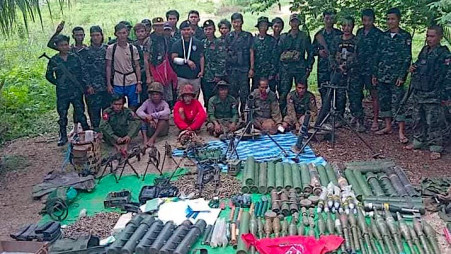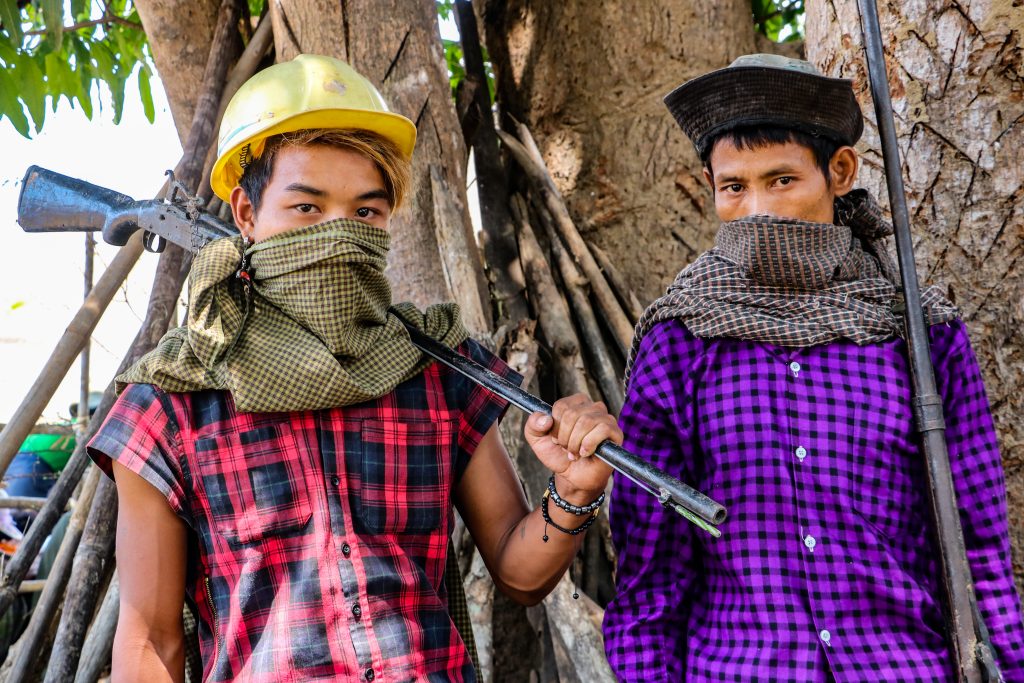Gains made by armed opposition groups in Myanmar, signaling
a potential turning point from the junta's rule, have raised hopes for a
brighter future. However, concerns are growing as reports emerge of alleged
abuses committed by some resistance factions. Human Rights Watch highlights
violations in eastern Shan state, including sexual assaults, forced
recruitment, and home robberies, traditionally associated with the military
rather than the opposition.
The military seized power on February 1, 2021, ousting the
civilian government led by Aung San Suu Kyi. In response, various resistance
groups emerged, including civilian-founded local defense groups, People's
Defense Forces (PDFs), and ethnic armed organizations (EAOs). EAOs, rooted in
historical persecution and interethnic conflicts, now unite to resist the
military, creating a formidable opposition estimated at 55,000 strong.
Amid the intensified conflict, both military and resistance
forces face accusations of human rights abuses. The junta responds with tactics
such as recruiting child soldiers, burning villages, and torture, while reports
of resistance groups violating international humanitarian law surface. Human
Rights Watch cites instances of forced recruitment by an EAO in Shan state and
armed groups in Rakhine accused of robberies and abductions.
Efforts to address abuses include education initiatives on
the Geneva Convention by organizations like the Kachin Women's Association
Thailand and the National Unity Government's training on international humanitarian
law. However, allegations against NUG-led PDFs underscore the challenges of
coordinating actions when leadership operates outside the country.
As conflict intensifies, aid delivery becomes critical. The
junta's restrictions hinder NGOs, making it difficult to provide assistance,
and internally displaced persons face starvation and limited access to
necessities. The hope for a temporary ceasefire brokered by China faces
challenges, with reports of continued military assaults despite the agreement.
The gains made by EAOs raise optimism for aid groups to
reach vulnerable populations. However, concerns linger about post-conflict
scenarios, with potential resumption of hostilities between EAOs once their
common enemy, the military, is defeated. A joint statement by four EAOs calls
for a federal democratic union, yet challenges persist in ensuring peace,
especially if EAOs operate outside their original territories without a
centralized authority.
As has been the third anniversary of the coup in Myanmar, uncertainty prevails regarding an end to military rule and the alleviation of civilian suffering. The complex landscape highlights the delicate balance between gains made by the opposition and the challenges they face in maintaining unity and addressing human rights concerns.









.jpg)